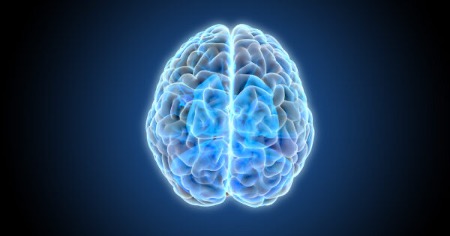Neuro Drug Passed Up by Biogen Posts Positive Data for Ionis, Setting Stage for Phase 3 Test
July 24, 2024
Source: drugdu
 530
530
Ionis Pharmaceuticals is looking ahead to a Phase 3 study for an antisense medicine it is developing to treat Angelman syndrome, a rare neurodevelopmental disorder with no FDA-approved therapies. Its main competition is an Ultragenyx Pharmaceutical drug set to begin pivotal testing later this year.
By Frank Vinluan An Ionis Pharmaceuticals drug in development for Angelman syndrome has mid-stage clinical trial results showing improvement across a range of measures of this rare neurodevelopmental disorder, and the company now plans to advance therapy to Phase 3 testing.
An Ionis Pharmaceuticals drug in development for Angelman syndrome has mid-stage clinical trial results showing improvement across a range of measures of this rare neurodevelopmental disorder, and the company now plans to advance therapy to Phase 3 testing.
Angelman is an inherited disorder that presents in infancy and leads to learning disability, muscle impairment, balance problems, and seizures. Patients typically develop little to no verbal ability. While Angelman patients can be treated with drugs that manage some of these symptoms, there are no FDA-approved therapies for the disease itself.
The results announced Monday for the drug, ION582, come from the multiple-ascending dose portion of a Phase 1/2 clinical trial. The open-label study evaluated three doses of the drug, which is administered as an intrathecal injection once monthly. The study enrolled 51 patients ages 2 to 50. Ionis said 97% of participants who received the middle and high doses saw improvement as measured according to a scale used to assess Angelman symptoms.
Carlsbad, California-based Ionis also said the therapy was safe and well tolerated at all three doses. No patients discontinued the study drug. Detailed results will be presented on Wednesday during the 2024 Angelman Syndrome Foundation Family Conference in Sandusky, Ohio.
Ionis specializes in developing drugs in the class of genetic medicines known as antisense oligonucleotides. Angelman is caused by the loss of function in the maternally inherited UBE3A gene. Children also inherit a paternal copy of UBE3A gene. But in genomic imprinting, the process in which one copy of a gene is expressed and the other is not, the paternal UBE3A gene is the one that’s silenced. The Ionis drug is designed to unsilence the paternal UBE3A gene to increase production of UBE3A protein in the brain.
ION582 comes from the labs of Ionis and was developed under a partnership with Biogen dating back to 2013. The collaboration has already led to the FDA-approved therapies Spinraza for spinal muscular atrophy and Qalsody for amyotrophic lateral sclerosis. In May, Ionis reported positive preliminary data for the Angelman program. But the company also disclosed that Biogen had decided not to exercise its option to license this drug candidate. That leaves Ionis responsible for financing and conducting the Phase 3 test of ION582.
Ionis faces potential competition in Angelman. Ultragenyx Pharmaceutical is also developing an antisense oligonucleotide therapy designed to activate the paternal UBE3A gene. In April, Ultragenyx presented Phase 1/2 data at the Annual American Academy of Neurology Meeting showing “rapid and clinically meaningful improvement.” However, the company has reported two study participants who had mild or moderate lower extremity weakness. This problem resolved and the patients remain in the study.
Cross-trial comparisons always come with caveats. In a note sent to investors, Leerink Partners analyst Joseph Schwartz wrote that the different baseline characteristics, endpoint measures, dosing schedules, and time points make it particularly difficult to compare the Ionis and Ultragenyx Angelman Phase 1/2 results. However, he said the Ionis therapy’s results look roughly comparable or even slightly better based on magnitude of improvement. With comparable efficacy results, the differentiating factors might be dosing frequency and safety. But he added that it’s still early to pick a winner, as both programs need to go through pivotal testing.
William Blair analyst Myles Minter said in a research note said the consistency of ION582’s results in its small study indicate that the Ionis therapy is providing clinical benefit.
“While slightly behind a peer program from Ultragenyx, Ionis has largely closed the development timeline gap and could be differentiated from a safety perspective, making ION582 an attractive asset for future growth given lack of approved therapies for the indication currently,” Minter said.
With ION582’s positive Phase 1/2 results in hand, Ionis said it now plans to talk with regulators about the design of a Phase 3 trial. The company expects to begin this study in the first half of 2025. Ultragenyx has already discussed its data with the FDA and said it plans to start a Phase 3 study by the end of this year. The Novato, California-based company said this sham-controlled study will enroll about 120 Angelman patients. The main goal will be measuring improvement in cognition at 48 weeks. Patients in the control arm will be eligible to roll over to the treatment group after the double-blind period is over.
Image: Jolygon, Getty Images
Read more on
- Gan & Lee Pharmaceuticals’ new PROTAC drug GLR2037 tablets have been approved for clinical trials to enter the field of prostate cancer treatment March 3, 2026
- AideaPharmaceuticals plans to raise no more than 1.277 billion yuan through a private placement to focus on the global clinical development of innovative HIV drugs March 3, 2026
- Giant Exits! Its Star Business Acquired March 3, 2026
- Focusing on cardiovascular and cerebrovascular diseases! OpenMediLead Medical Intelligence Dual Engines Launch Internal Testing, Connecting Drug Development and Clinical Diagnosis in a Closed Loop March 3, 2026
- Innovent Biologics Announces Approval of New Indication for BTK Inhibitor “Pitubrutinib” in China March 3, 2026
your submission has already been received.
OK
Subscribe
Please enter a valid Email address!
Submit
The most relevant industry news & insight will be sent to you every two weeks.



